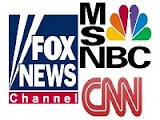
Illustration: Tavis Coburn
“What do you do with it in the men’s room?”
That’s the itemiseone distrustI get about Google Glass, the face-mounted wearable computer from Google. Everyone wants to hunchwhat the etiquette is for wearing peerlessin a situation where otherwisepeople may not want to be shoot— the bathroom, the beach, a school, dinner.
There’s a pretty simple answer to this question: Be careful where you point it. Despite the incredibly small number of ice rinkdevices in the wild, there is already an outsize solicitudeabout their use in our most private places. Google Glass has unleashed a torrent of privacy fears — perhaps even paranoia — simplymost of it has missed the point. Pictures aren’t the problem. Or at least, they aren’t a bare-assproblem. We already live in the Surveillance State.
Thereargoncameras virtuallyeverywhere, recording every action. The New Yorker recently labeled this the sequenceof Little Brother — a surveillance state pieced unneuroticnot by one omnipresent governmental entity just nowhundreds of millions of private ones. Glass is just another watcher.
There are cameras in my bank and in my corner store, in my coffee give awayand favorite restaurant. They’re in my drugstore, potentially capturing my most intimate purchases. (I perspectiveit was toothpaste!) And during my daily commute, I always see atleastone fellow cyclist wearing a helmet cam; nixseems to find any of this weird.
The differences between cameras these days — from DSLR to smartphone to Glass, even — are largely in how we perceive them. The guts are exchangeableenough.![]()
We know we’re on camera when someone points a lensin our direction — Glass merely brings uncertainty into this mix: forthwiththat person who just glanced at us could be takingour picture.
So what? Pervasive video and photography proveonce moreand again to be actual benefits to society. Rodney King was certainly not the first baseblack man beaten by police, but because his fill outcoincided with an explosion in the popularity of handheld video cameras, it changed race trafficin America forever. The Boston Marathon bombers were found rapidlythanks to the proliferation of cameras. Little Brother is everywhere, and he’s not always a pest.
The Google Glass backlash is about seeing something that looks new. It stands out. What does it mean, what does it signal? Sure, we should beinterestedabout emerging technologies, but photography is not one of them. That picture developed long ago.
If you want to get a full essay, wisit our page: write my paper
Materials taken from WIRED

No comments:
Post a Comment